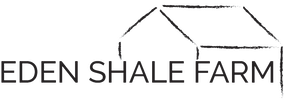|
Who would have thought two months ago that the summer would have turned out so wet?! Although we will always welcome the moisture this time of year, it has made the hay season a struggle. We have put up more balage hay than I had intended to, but at least it was harvested into a usable form.
The increased rainfall has kept our pastures growing green this summer and the cows are looking fat as ever. Our bred heifers are looking especially good; thanks to a grazing trial we have them currently involved in. Dow AgroSciences and USDA FAPRU, with Dr. Glen Aiken, have done a terrific job in designing and helping us implement this grazing demonstration, with the goal of observing animal weight gains using different forage management strategies. The heifers are broke into 4 equal sized groups and three of them are rotationally grazing through the paddocks that have different management strategies applied. The fourth group was continually grazing a larger field (same animal units/acre) without being rotated. The first group of heifers are grazing paddocks that have been sprayed with Chaparral herbicide. The Chaparral has two major benefits, first is the obvious broadleaf weed control. The second is when applied during the fescue’s early boot stage it will suppress the seed heads from forming. The seed heads have the highest levels of toxic alkaloids such as ergovaline which causes vascular restriction, and thus reduces that cattle’s ability to dissipate heat. When the cattle are experiencing increased heat stress they tend to stand around in the shade or in water, thus reducing the amount of time spent grazing which negatively results in weight loss. By lowering the amount of toxic alkaloids the cattle ingest we are able to reduce the amount of heat stress they experience, allowing the cattle more grazing time, which in turn creates higher weight gains. The second group of heifers were rotated through paddocks that had different varieties of clovers interseeded into them. The clovers help to both fix nitrogen and dilute the amount of toxic fescue that the cattle were ingesting. The third group of heifers were in the control paddocks that did not have any treatments done to them. These heifers were rotated through the paddocks at the same rate as the first two groups. This group and the first group (Chaparral paddocks) did have 60 lbs of actual nitrogen applied to all the paddocks. This allowed us to compare the fertilized paddocks with the clover paddocks to determine the amount of nitrogen that the clover was fixing back into the soil. The final group was turned out into a large fescue pasture and was allowed to continually graze without any kind of rotation. This pasture did not receive any fertilizer or herbicide. The third group in the control paddocks and this continually grazed group were fed 6 lb/hd/day of a 12% protein ration for 5 weeks (2 weeks prior to AI breeding, and 3 weeks after). This was done to determine if the increased nutrition had any effect on pregnancy rates. Dr. Lehmkuhler developed this feed trial and will help us to determine its success. However, the results are still pending as we have not pregnancy checked the heifers yet. We collected weights on all four groups to see which pasture management technique the heifers gained the most weight on. The first group on the Chaparral treated paddocks gained the most weight. They averaged 53 lbs of gain. The clover paddocks gained almost as much at 51 lbs of gain. The control paddocks that were given grain and rotated through the paddocks gained 43 lbs. And the continuously grazed group that was given the same amount of grain only gained 10 lbs on average. I will be curious to see if the two groups who received the grain have any better conception rates than the other two groups. Thus far in this trial we have observed that there is a huge benefit to implementing a rotational grazing program, and anything you can do to manage the fescue toxicosis will also give the cattle further advantages. Comments are closed.
|
Archives
June 2024
Categories
All
Welcome |
CONTACT US |
EMAIL SIGN UP |
|
Eden Shale Farm
245 Eden Shale Rd. Office: (859) 278-0899 Owenton, KY 40359 Fax: (859) 260-2060 © 2021 Kentucky Beef Network, LLC.. All rights reserved.
|
Receive our blog updates
|

 RSS Feed
RSS Feed
